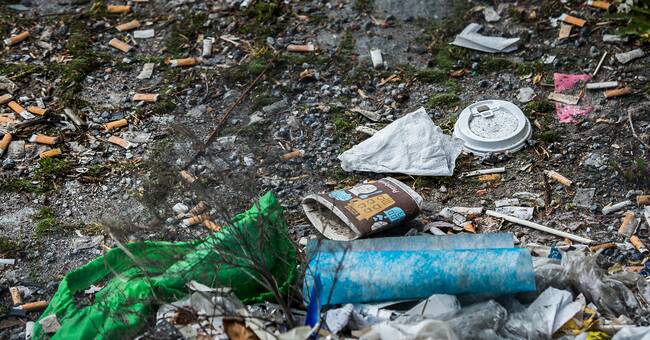Rubbish such as fimpar, chewing gum and charcoal paper are things that - usually - are thrown away by individuals one at a time and are therefore today exempt from punishment.
"Overall, however, the littering of these smaller objects gives rise to major effects on the environment.
Littering in Sweden is extensive, ”the government writes in the legal advice.
Therefore, it is proposed that minor littering should no longer be exempt from punishment.
The proposal is proposed to enter into force on 1 January 2022.
The Legal Council's referral also points out that small rubbish usually contains plastic, which nature finds difficult to break down.
Few have been fined
Cigarette butts are the disposable plastic product that most leads to littering.
According to Håll Sverige Rent's rubbish report 2020, around one billion trinkets are thrown on Swedish streets and squares every year.
This corresponds to approximately 108 tonnes of plastic, it is stated in the legal advice.
The inquiry on which the bill is based also points to the problems with chewing gum.
It takes about 20-25 years for a chewing gum to break down, according to the investigation.
Chewing gum is also difficult and expensive to clean.
The fine for so-called littering offense is currently SEK 800.
Some examples of offenses that can be fined are small amounts of discarded fast food packaging, glass and plastic bottles, different types of beverage containers or disposable grills.
However, so-called minor littering offenses, such as throwing a pimp, have been exempted from criminal liability.
In 2020, only 87 people were fined for littering, according to Keep Sweden Clean.

